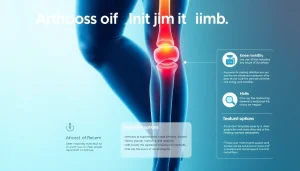The Essentials of the VDAP Program
The Voluntary Disciplinary Alternative Program (VDAP Program) is designed to provide a supportive framework for nurses in Alabama who are navigating challenges related to substance use or mental health issues. Created by the Alabama Legislature, this initiative aims to encourage early identification, intervention, treatment, and rehabilitation. By participating in the VDAP Program, nurses can potentially avoid the disciplinary actions that accompany licensing issues, making it an essential resource for those in need. However, understanding the nuances of this program is critical for those considering participation. For a more detailed overview of the VDAP Program, you can explore additional resources here.
What is the VDAP Program?
The VDAP Program represents a compassionate approach toward nursing professionals who may have encountered difficulties with substance use or mental health. This voluntary initiative operates on the premise that with the right support, individuals can effectively navigate their challenges while still fulfilling their professional roles. The primary goal of the VDAP Program is to provide a pathway for rehabilitation rather than punishment, fostering an environment where nurses can address their issues discreetly and constructively.
Participants in the VDAP Program engage in a series of evaluations, treatments, and support mechanisms tailored to their specific needs. Ultimately, completion of the program generally allows nurses to retain or regain their licenses, provided they meet all requirements set forth by the Alabama Board of Nursing.
Eligibility Criteria for Participation in the VDAP Program
Understanding the eligibility requirements for the VDAP Program is crucial for prospective participants. To qualify, applicants must:
- Hold a valid nursing license in Alabama.
- Admit to experiencing issues related to substance use, mental health, or behavioral problems that may impact their professional performance.
- Agree to comply with the program’s monitoring and treatment protocols.
- Submit the application within a specified timeframe, generally after a disciplinary action has been initiated.
It’s important to note that meeting these criteria does not guarantee acceptance into the program; each case is evaluated individually, and medical or psychological assessments may be required.
Key Benefits of Engaging in the VDAP Program
Several key benefits make the VDAP Program an attractive option for eligible nurses:
- Confidentiality: Participation in the VDAP Program is generally confidential, offering a degree of protection for nurses concerned about the stigma associated with substance use and mental health issues.
- Avoiding Disciplinary Action: Successfully completing the program can mitigate or eliminate the threat of disciplinary action against a nurse’s license.
- Supportive Environment: Nurses in the program are surrounded by supportive peers and professionals who understand their challenges, providing motivation and guidance through their recovery journey.
- Professional Rehabilitation: The program is structured to promote both recovery and professional rehabilitation, reinforcing healthy practices and coping strategies necessary for sustainable nursing careers.
Challenges Faced by Nurses in the VDAP Program
While the VDAP Program offers numerous benefits, it is not without its challenges. Nurses navigating the complexities of the program may face various hurdles that can hinder their progress and overall experience.
Stigma and Misconceptions Surrounding the VDAP Program
One significant challenge is the stigma associated with participation in the VDAP Program. Many nurses fear that admitting to a substance use or mental health issue may damage their reputation within the healthcare community. Misconceptions about the program further exacerbate this issue: some believe it functions as a punitive measure rather than a supportive mechanism, leading to reluctance in seeking help.
Overcoming this stigma requires an open dialogue about the realities of substance use in the nursing profession and fostering environments that encourage transparency and support rather than judgment.
The Emotional Toll on Participants of the VDAP Program
Another significant challenge is the emotional toll that participation in the VDAP Program can take on nurses. Recovery from issues related to substance use or mental health is often fraught with difficulties, including frustration with the treatment process, the fear of relapse, and coping with personal emotions. As participants confront their struggles, they may also experience feelings of guilt and shame that require additional emotional support.
Consequently, it is crucial for the program to provide ample resources for mental health support, including counseling services and peer support groups.
Legal Implications Associated with the VDAP Program
The legal implications of entering the VDAP Program are critical considerations. Participating in the program can lead to a better outcome concerning licensing; however, there is also the potential for legal ramifications if the program’s requirements are not met or if a nurse is unable to complete the program successfully. Nurses must remain aware that failing to adhere to the guidelines could result in serious consequences for their professional status.
Consultations with legal professionals experienced in nursing law can provide valuable insights and guidance during this process, ensuring that individuals understand their rights and obligations under the VDAP Program.
Best Practices for Navigating the VDAP Program
Successfully navigating the complexities of the VDAP Program requires a strategic approach. By implementing the following best practices, participants can enhance their chances of a successful outcome.
Seeking Professional Guidance in the VDAP Program
Engaging with professionals who have experience in navigating the VDAP Program can prove invaluable. This includes legal counsel, addiction specialists, and mental health professionals who can provide tailored advice and service recommendations. By doing so, nurses can create and maintain a robust support system that fosters accountability while ensuring effective treatment.
Maintaining Privacy and Confidentiality in the VDAP Program
Protecting confidentiality should remain a priority throughout the VDAP Program journey. Participants should be vigilant about sharing personal experiences and information, particularly within social settings or professional environments. Creating boundaries surrounding discussion topics can help safeguard their privacy and encourage honest communication during therapy or support group meetings.
Effective Coping Strategies for Participants in the VDAP Program
Adopting effective coping strategies can facilitate a smoother recovery process for participants in the VDAP Program. Implementing daily routines that prioritize mental well-being—such as practicing mindfulness, engaging in physical activity, or participating in hobbies—can serve as protective factors against relapse and promote overall wellness.
Moreover, establishing a strong support network encompassing friends, family, and fellow program participants can provide the emotional and practical assistance vital in overcoming challenges.
Real-Life Case Studies Involving the VDAP Program
Examining real-life examples of individuals who have participated in the VDAP Program can offer insight into the potential outcomes and experiences within the program.
Success Stories from Former Participants of the VDAP Program
Numerous nurses have successfully completed the VDAP Program and emerged with renewed purpose in their careers. For instance, a nurse who battled substance use prior to entering the program discovered through counseling that addressing her underlying mental health issues was key to her recovery. By participating in the VDAP Program, she received the support she needed, regained her nursing license, and now works as a mental health advocate in her community.
Success stories such as this illustrate not just the potential for personal recovery, but the opportunity for healing and positive change within the profession.
Lessons Learned from the VDAP Program
While many participants experience positive outcomes, it is equally important to acknowledge lessons learned from those who faced challenges. Some former participants report complications with compliance, emphasizing the need for intensive support and follow-up care. Such experiences highlight the importance of a robust treatment plan and ongoing monitoring beyond initial program completion.
Learning from these experiences can help improve the VDAP Program, potentially incorporating additional resources or structures to better support nurses in their recovery journeys.
Expert Opinions on the Future of the VDAP Program
Experts emphasize that the future of the VDAP Program should focus on reducing stigma and enhancing accessibility to resources. By collectively working to reshape perceptions surrounding substance use and mental health in nursing, the program can evolve to better meet the needs of its participants. Additionally, ongoing training for program administrators can ensure that those involved remain informed about best practices in addiction recovery and healthcare regulation.
Resources and Support for Nurses in the VDAP Program
To assist nurses who are navigating the intricacies of the VDAP Program, accessing resources and support is essential for success.
Finding Support Groups Related to the VDAP Program
Support groups specifically geared towards nursing professionals can offer valuable peer support. Connecting with others who understand the unique challenges of the nursing profession can help foster a sense of belonging and provide practical coping strategies. Many states offer organized support groups, either virtually or in person, to facilitate these connections.
Educational Resources for Understanding the VDAP Program
Educational materials, including informational workshops or seminars, can offer insights into managing substance use and navigating recovery. Nurses should seek out training opportunities, webinars, or resources provided by nursing boards or national organizations dedicated to promoting mental health awareness in healthcare settings.
How to Access Legal Support While in the VDAP Program
Understanding the legal implications of participation in the VDAP Program is paramount. Nurses should seek legal consultation, ideally from professionals who specialize in healthcare law. These experts can assist individuals in comprehending their rights, responsibilities, and the potential impact on their careers while adhering to VDAP guidelines.








